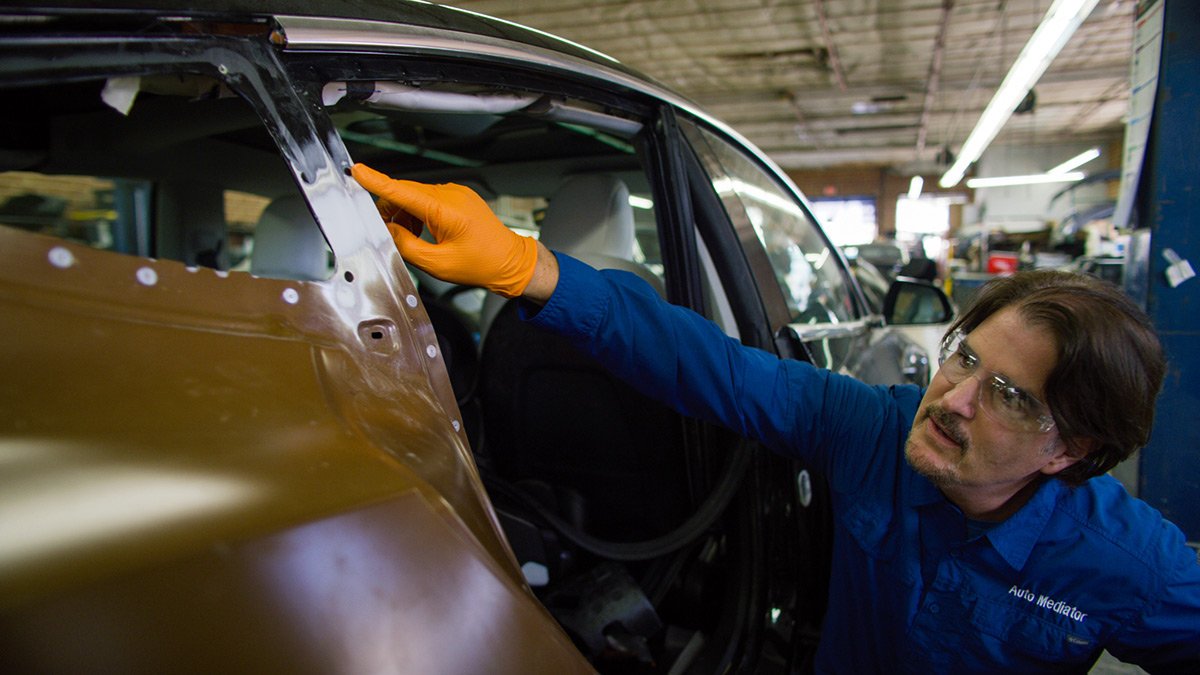Did you ever stop to consider the amount of trust in your fellow human beings that it takes to get behind the wheel of a car and drive it out of the garage? If you stop to think about it for very long, you might never drive again.
There could be anyone driving that oncoming car–a kid with a brand new driver’s license and a car full of friends to impress, an elderly man with poor eyesight, a person texting or otherwise distracted, someone late for work, or someone under the influence of drugs or alcohol. It doesn’t matter how careful a driver you are: if you’re in the path of an oncoming vehicle driven by someone who isn’t properly in control of it or who isn’t paying attention, it probably won’t end well.
If you have been in an accident and you were not at fault, you may think your insurance company will just handle it all and send a check for repairs. However, you should also consider filing a diminished value (DV) claim.
What Is a Diminished Value Claim?
When a car has been in a collision and repaired, it loses resale value even if it was restored to perfect condition. The wreck will appear on the vehicle’s history and potential buyers will refuse to pay as much for it as they would for an identical vehicle with a clean report. Diminished value is the difference between the market value of your car before the collision and after being repaired.
A DV claim is not filed with your own insurance company, and they won’t file it for you. You must file a DV claim with the insurance company of the driver who hit you. It takes some initiative, and the burden of proof is on you. You must collect accident reports, photos, and witness statements, and you must also provide evidence of your car’s value pre- and post-collision/repair. For this, you will need to have a rock-solid appraisal. Providing an accurate appraisal of your vehicle can mean a difference of thousands of dollars.
How Do I Appraise My Vehicle for a DV Claim?
You could use a free calculator or a bargain online appraiser, but it’s not really a great idea. A cheap, one-size-fits-all appraisal doesn’t take into account any of the specifics of your unique vehicle, such as an impeccable maintenance record or any customization you might have done. And the higher value your vehicle, the more you stand to lose with a faulty appraisal.
To make sure you get the most out of your diminished value case, you should hire a licensed diminished value appraiser. The Auto Mediator has over two decades of experience. Their expertise, knowledge, and special tools will provide an appraisal that reflects the true value of your vehicle.
What if the Insurance Company Rejects My Diminished Value Claim?
If the insurance company does not agree with the appraisal or otherwise finds fault with your claim, Auto Mediator offers umpires services and mediation to help reach an agreement with which both parties can be satisfied. Their automotive experts are trained at Pepperdine University’s Straus Institute for dispute resolution.
Let The Auto Mediator Help
There’s not a lot you can do about who’s sharing the road with you, but if you get in an accident, you can protect yourself from unnecessary financial loss due to diminished value. You don’t have to take a financial hit on a vehicle’s resale value.
Don’t file a DV claim without hiring the help of an expert appraiser. If you’ve been in a wreck that was not your fault, turn to the Auto Mediator for help recovering your vehicle’s full diminished value.
